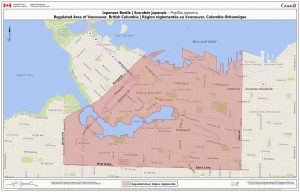Wondering what to do with your garden now the cold has set in? Our Landscape Horticulturist Erin Stackhouse has the answers.
By the time the final leaves have fallen, been raked up and composted or removed, it’s easy to think the work is done.
We can wait until spring when we feel inspired by new growth, longer days and warmth in the air.
However the change of seasons is important for plants, and is often a missed opportunity to showcase the quiet, more subtle beauty gardens contribute to a landscape.
At this time of year, many people have questions regarding how and when to prune various plants and there is a lot of different information available depending on where you live and therefore, your growing zone.
In the Pacific Northwest we are fortunate to be able to accommodate the growing requirements of an impressive range of plants.
From the near tropical to much hardier species common in more frigid parts of the country.
While this allows winter garden care to be more flexible, the last couple of winters reminded us we do still live in Canada and are not immune to that white fluffy (or not so fluffy) stuff that threatens the livelihood of plants.
The tendency is to cut back all plants, remove all leaves and prepare beds as though spring is around the corner.
But this can leave plants vulnerable going into our coldest months.
With recent environmental fluctuations and unpredictable weather patterns, it can be difficult to know how to give these plants the best chance of success.
Some, such as herbaceous perennials, can be cut right to the ground while roses can be cut right back and annuals removed.
Most pruning can be done once leaf fall has finished and plants have entered dormancy without any harm being done.
Since we live in a temperate climate, it’s important to be aware of the effect unpredictable weather can have.
Warmer temperatures can trick plants into producing tender new growth then suffers dieback if a cold snap follows.
If you are concerned about the well-being of your plants or have species on the verge of being suitably hardy in Vancouver, here are some precautionary actions you can take:
- Save pruning until late winter when the greatest risk has passed. An added benefit is that many plants, including grasses and hydrangeas, provide great winter interest with some snow resting on them.
- Allow a layer of leaves to cover the garden. It may not be a popular aesthetic choice, but it effectively protects plants from frost. In the spring, partial removal of the leaves and addition of a mulch allows this organic matter to be incorporated into the soil, providing further nutrients and oxygen.
- If leaves are garden undesirable for appearance sake, or the leaves are unhealthy and may perpetuate plant sickness, there are other ways to provide mulch! A great alternative is a layer of compost or soil amender. The goal is not to bury plants- 1-2” will protect from the worst of the frost.
- Wrap susceptible specimens. Burlap can easily be found in rolls at garden centres and protects tender foliage from winter damage and desiccation. Some plants teeter on the edge of hardiness, and younger, less established plants are at higher risk. Rosemary and Lithodora are examples of such plants.
Another activity to consider is hedge trimming. Vancouver tends to get a lot of wet heavy snow, which thaws, refreezes, and weighs down branches and leggy growth.
Keeping shrubs and hedges well maintained encourages density, producing stronger plants that are less likely to split or bow under added weight.
Also, be aware of deadwood or already damaged branches that are susceptible to failure if exposed to additional stress.
Safe in the knowledge that your garden is well prepared, now is the perfect time to contemplate changes or additions you would like to make for the upcoming growing season.
Plant some bulbs, flip through gardening magazines for inspiration, consider your spaces and what you enjoy about them, and discuss ideas that you may have to maximize the time spent in your garden.
On the west coast spring tends to come early and businesses such as ours quickly become busy with requests for garden clean ups and upgrades.
By putting the time in over the winter, you can beat the rush and ensure your ideas become reality in time for them to be properly enjoyed.
Best of luck to all of you and your gardens from the team at Yard Ventures Inc, and visit our contact page if you need any help.









